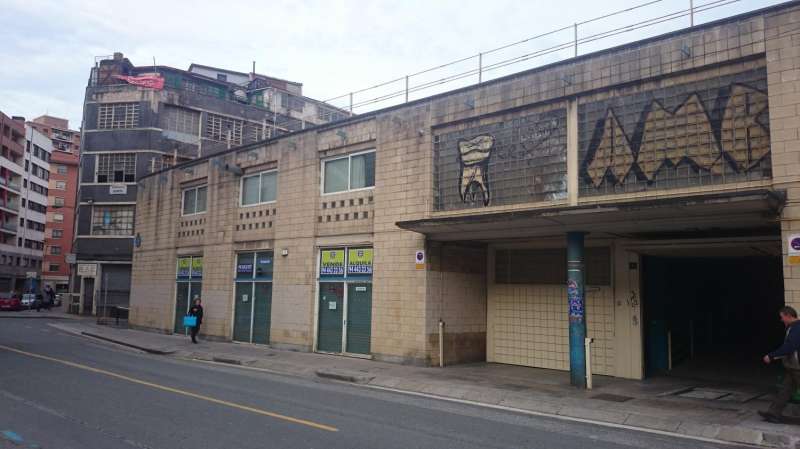Churches, places of reference, integration and socialization for the immigrant population

Religiosity is a key aspect in the process of integration for the migrant population of sub-Saharan origin. "A fairly significant relation is seen to exist between these two factors," says Rafael Cazarin, a sociologist at the UPV/EHU's Department of Sociology II. "When they go to the churches to participate in services, they have the chance to establish affective bonds with the community and build relationships of trust while sharing certain values and migratory experiences." In order to analyse the interrelation between religion, churches and pastors in the integration of migrants, Cazarin conducted an ethnographic study on the Evangelical-Pentecostal churches of sub-Saharan origin, particularly looking at Nigerian and Congolese pastors.
Evangelical Pentecostalism is the most important Christian movement in modern sub-Saharan Africa; it has one of the highest growth patterns in the last 20 years amongst the four great world religions (Christianity, Judaism, Buddhism and Islam), but especially in Africa and the American continent. "Although local people may not consider the existence of these churches, in Bilbao, for example, my research covered six to seven Pentecostal churches. In Greater Bilbao, there may be double this number or even more; yet it is true that they are very precarious and are found in marginalised locations. If you wander through the San Francisco neighbourhood, you can find a series of posters inviting people to attend the sessions held on weekends in different churches," he explained.
Beyond the services of worship, these churches are places that host a great diversity of events of interest for the immigrant population. "For instance, a couple of times, I have assisted at an event that involved the embassy of Nigeria or I've heard about specific diplomatic procedures that Nigerians had to go through; or even managing cultural conflicts. This is because of the strategic role of pastors as community leaders and influential people in the everyday life of migrants," said the researcher.
As Cazarin specified, pastors act "as cultural brokers and people who inform the community by providing a range of knowledge of general interest for the people who, in many cases, are undocumented, such as places where they can register, the welfare benefits they can apply for, or how best to get around in certain provinces. They also speak several languages, something that is very important in the process of mediation, as they are people who have been here much longer. So they are very important figures for the community."
The churches, places for integration and socialization
One of the most noteworthy conclusions that emerged from the research is that the churches are more than meeting points for a religious group. "It is a place of reference for people with different cultures and nationalities who in other contexts would not mix," he said. This cultural blend also leads to the rearrangement of values, morals and the way they interpret their conditions. In other words, migrant worshippers "tend to set aside traditional particularities from their cultures of origin while reinterpreting them as part of one big Christian culture; they negotiate their own social cohesion in the place of evangelical worship."
This turns the churches into places for the socialisation and management of diversity beyond that of religion. "The pastors say that many people go to church to develop social relationships, to reinforce their affective bonds and to seek companionship, which are harder to come by in their daily lives owing to the isolation caused by the migratory process. When they meet, they talk about other things, and after the services, there are sometimes other types of events, etc."
Cazarin says, "The state could acknowledge these churches and, more specifically, the pastors, to implement integration policies. Firstly, the view they have that churches are far removed from the notion of social, economic or cultural integration. Secondly, the function of the pastors in the immigrant community is not recognised. In other places with a more deeply rooted history of migration flows, such as Germany or even Catalonia, these leaders are seen as allies and migrant communities are accessed more easily through state agents. While no greater outreach of the public integration services is forthcoming, these people will to continue to seek the pastor because he/she is the closest person to them, a social reference."
Despite having focussed his research on Evangelical-Pentecostal churches, Cazarin pointed out that "the results can be extended to other religions or denominations in migratory contexts in terms of socialization, the management of cultural diversity and, above all, the role of the religious leaders in the group of worshippers."
More information: Rafael Cazarin et al, Spiritual brokers: African Pastors and the mediation of migratory processes, Critical African Studies (2017). DOI: 10.1080/21681392.2017.1339246
Provided by University of the Basque Country

















